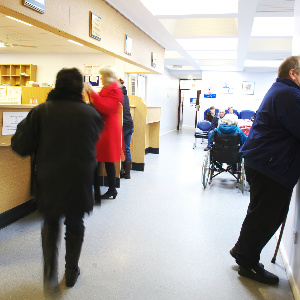Vulnerable groups wrongly refused primary care due to unclear guidance, report claims

Two out of 5 ‘vulnerable people’ have been incorrectly denied primary care due to unclear guidance, a report published by the Doctors of the World UK has claimed.
The report said that 31% of practices continuously refused registration, with 16% of surgeries giving inconsistent responses, which mostly affected pregnant women, children, refugees and homeless people.
It revealed that lack of identification (78%) was the most common barrier in preventing patients from receiving care, despite recent NHS guidelines stating that a valid ID and proof of address was not necessary when registering.
But it added that the guidance had been ‘inconsistent’.
A statement by Doctors of the World said: ’NHS guidelines that were issued in November last year state that patients do not need proof of ID or address to register and see a doctor, but inconsistent and unclear guidance in the past has led to confusion in some practices that mean people are still being turned away by surgery staff.’
Dr Steve Mowle, spokesperson for the RCGP, said: ’GPs are highly trained to treat the whole patient when making a diagnosis and we are well aware of the specific needs – health and otherwise – that refugees, asylum seekers, and other vulnerable groups, such as homeless people and sex workers might have.’
He said that the General Practice Forward View had committed £45m for training reception and clerical staff.
Dr Mowle added: ’We would suggest that as part of this, reception staff might benefit from training that explains the legalities of who is entitled to care and what documentation is necessary – based on the standard Operating Principles of NHS England, and equivalents in other nations of the UK – so that vulnerable people don’t fall through the gaps as a result of technicalities.’









